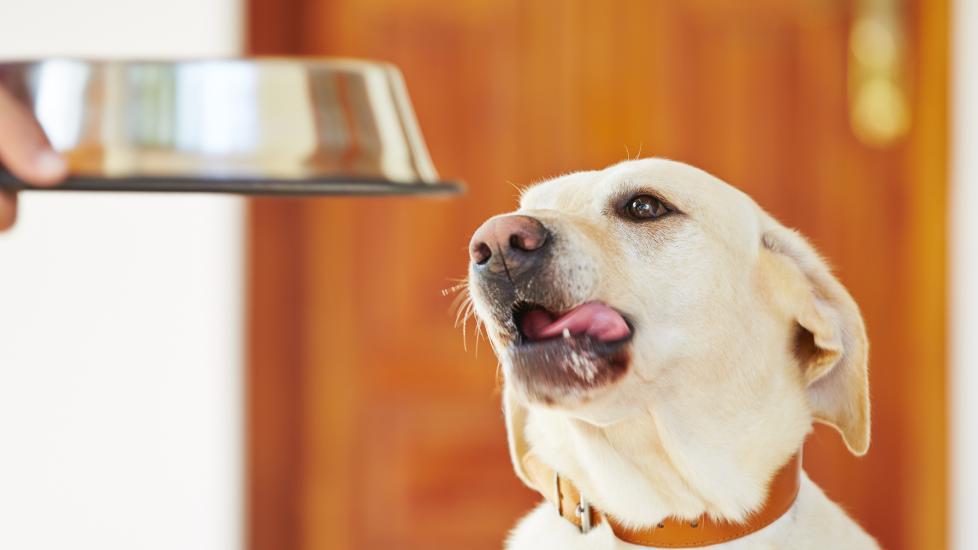Can Dogs Eat Edamame?
Lots of us like to snack on the healthy young soybeans called edamame. These little nuggets of soy are particularly tasty when cooked with lots of sauces, spices, and a splash of salt. Your curious pup might be jealous of your snack and want you to share, but can dogs eat edamame? And is edamame good for dogs like it is for us?
Here’s everything you need to know if you’d like to share edamame with your pup.
Is Edamame Good for Dogs?
Edamame is not toxic to dogs, packed with wholesome benefits, and tastes good, too. These little beans are low in calories, fat, and sugar and are rich in protein and fiber. They are also gluten-free and filled with vitamins C and K, calcium, omega-3 fatty acids, and folate.
However, dogs should only eat small amounts of edamame as an occasional treat. The recommended portions are so small, in fact, that dogs are unlikely to reap any of the nutritional benefits the beans provide. But as an occasional snack, edamame isn’t going to harm a healthy pup—and it’s a healthier snack than many others you might be tempted to offer your dog.
Can Edamame Be Bad for Dogs?
Though it’s nontoxic and healthy, edamame shouldn’t be a go-to treat for your dog for a few reasons:
-
Edamame is a soy protein, and soy is known to affect hormone balances in dogs (and in people!) if eaten in large amounts.
-
Dogs can develop a soy allergy over time. If your dog has been diagnosed with a soy allergy, edamame isn’t a good treat.
-
Edamame is rich in fiber, meaning these little beans can contribute to cases of gas and may even result in diarrhea.
-
The bean pod’s husk is difficult for your dog to digest. The husks tend to be tough, especially in larger and older pods. This can be a choking hazard and, when eaten in large quantities, an obstruction risk for your pup. If you give your dog edamame, remove the beans from the pod first.
-
Many of the sauces and spices we love with edamame can be unsafe or toxic for dogs.
If you wish to share your edamame with your pooch, only offer completely plain (no sauces, spices, or salt) hulled beans in very small amounts. Observe your dog afterward to see how they tolerate the new snack.
How To Safely Prepare Edamame for Dogs
If you’re sharing edamame with your pooch, choose the smaller pods, which are more likely to have tender (and therefore more digestible) beans in them.
Carefully remove the beans from the pods and rinse them off to remove any contaminants or bits of hull left behind. You can serve edamame raw, steamed, cooked, or frozen, depending on your preferences and what your dog likes.
The important part is making sure the beans are completely plain, with no additives. Purchasing fresh edamame helps ensure your beans will be safe for your dog, as processed ones often have added salt or other flavorings.
Edamame beans can be served as a food topper, frozen into toys like a Kong®, or given individually as training treats. Start with a small amount and gradually work up to the maximum recommended portion.
Always check with your veterinarian before adding anything to your dog’s diet.
How Much Edamame Can Dogs Eat?
As a general rule, it’s safe to give your dog up to 1 tablespoon of edamame beans for every 10 pounds your pup weighs, no more than once or twice per week. Always start slow and watch for any gastrointestinal side effects.
-
Extra-small dog (2–20 pounds) = 0.5–1.5 tablespoons hulled beans once or twice per week
-
Examples: Yorkies, Chihuahuas, Pomeranians, Pugs
-
-
Small dog (21–30 pounds) = 2–3 tablespoons hulled beans once or twice per week
-
Medium dog (31–50 pounds) = 3–5 tablespoons hulled beans once or twice per week
-
Examples: Basset Hounds, Border Collies, Australian Cattle Dogs
-
-
Large dog (51–90 pounds) = 5–9 tablespoons hulled beans once or twice per week
-
Examples: Pit Bulls, German Shepherds, Labrador Retrievers, Australian Shepherds
-
-
Extra-large dog (91+ pounds) = 10 tablespoons hulled beans once or twice per week
-
Examples: Newfoundlands, Bernese Mountain Dogs, Saint Bernards, Great Pyrenees
-
What Other Vegetables Can Dogs Eat?
Edamame is just one dog-friendly vegetable you can share with your pup. Others include:
Featured Image: Chalabala/iStock / Getty Images Plus via Getty Images
